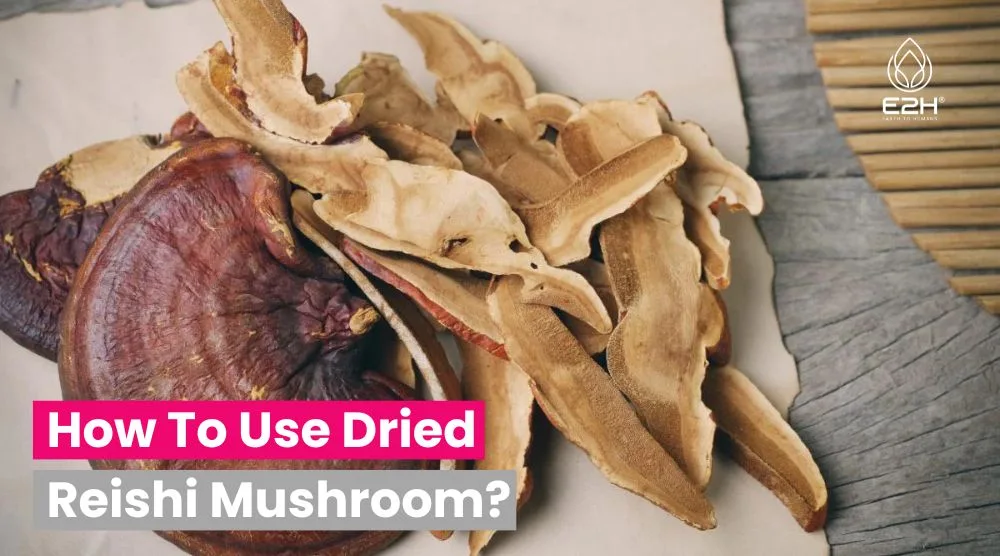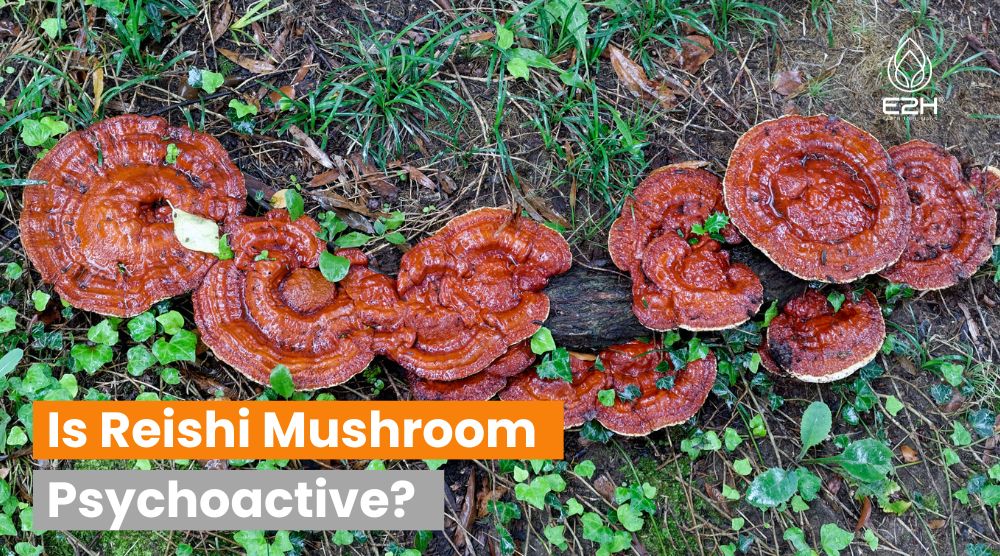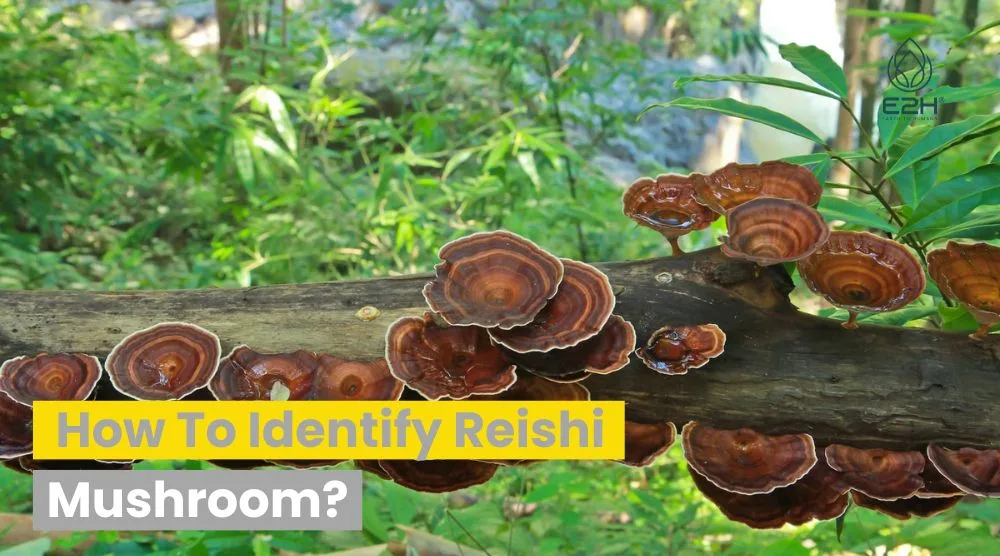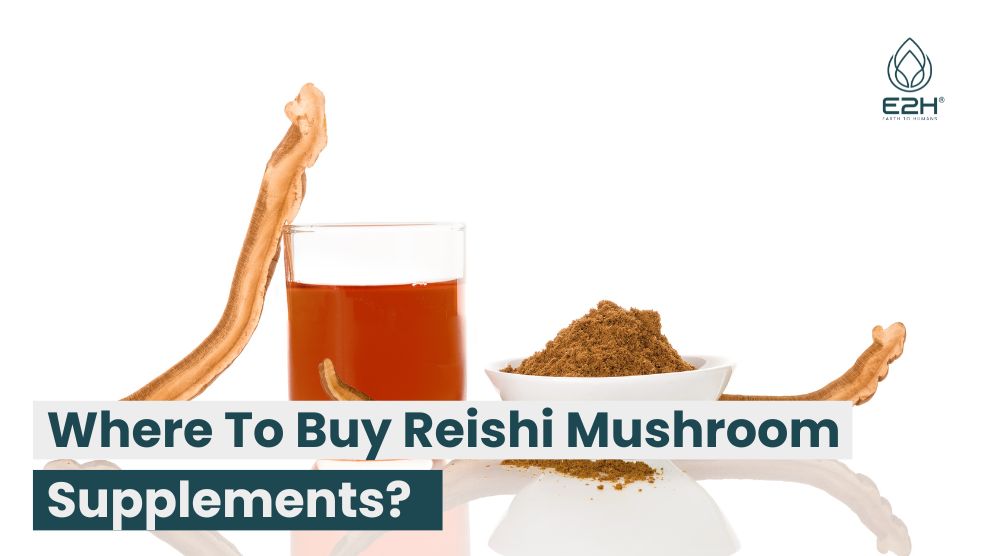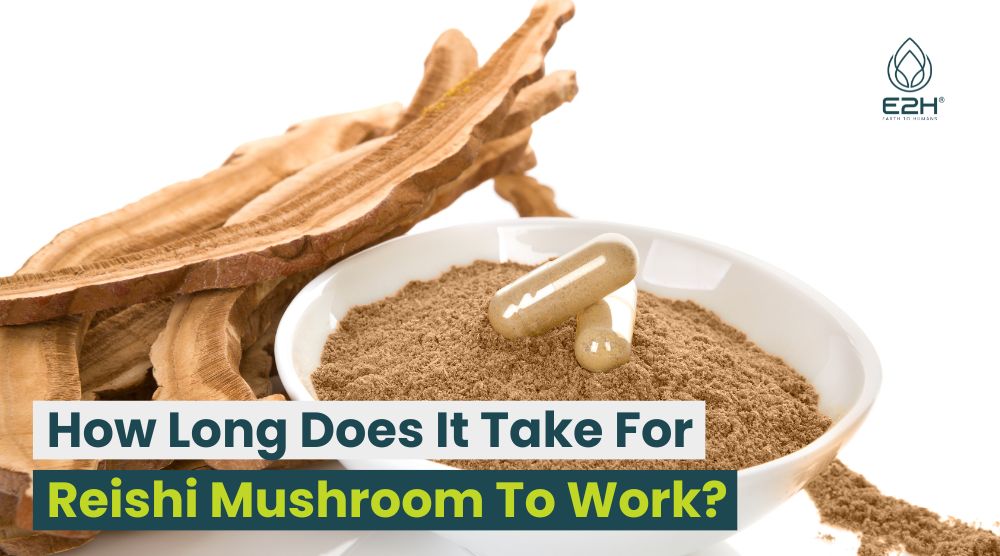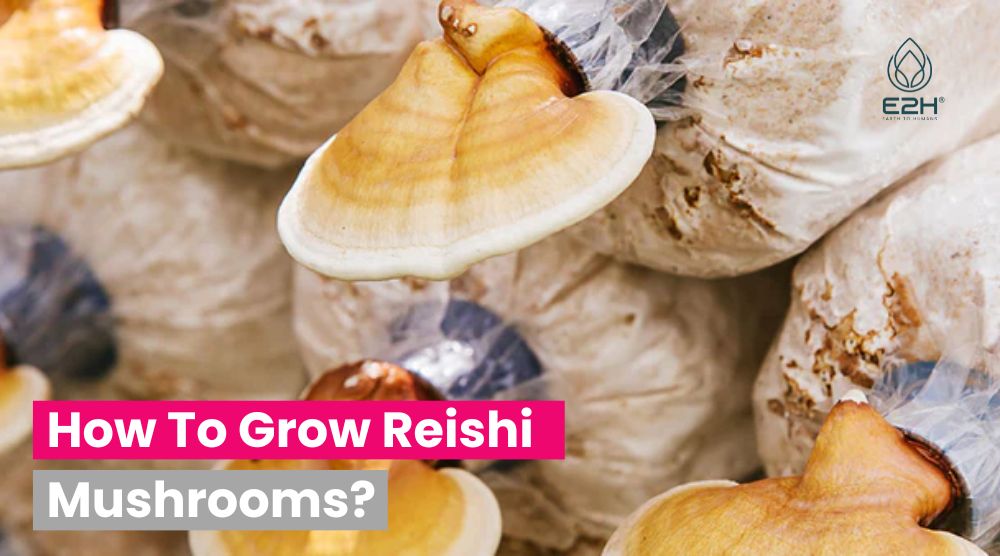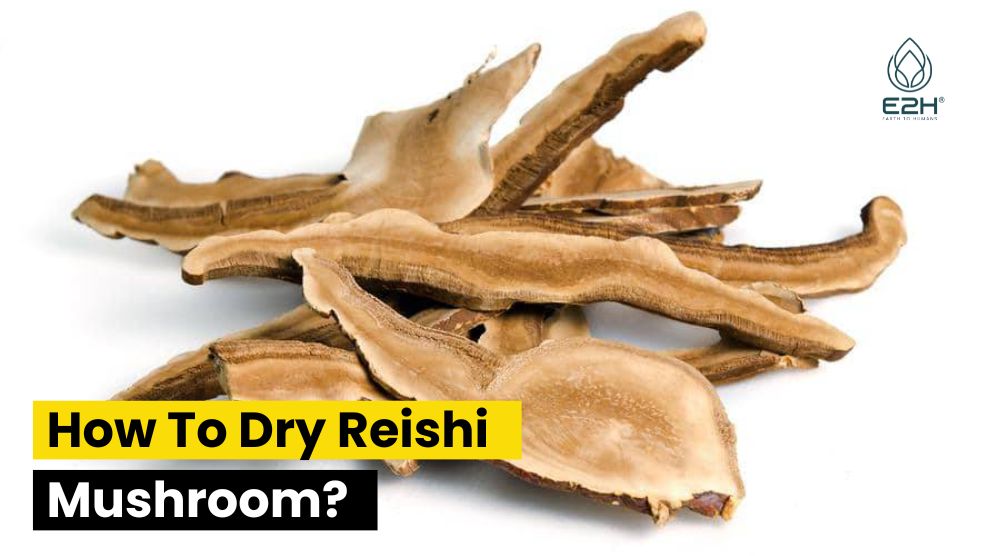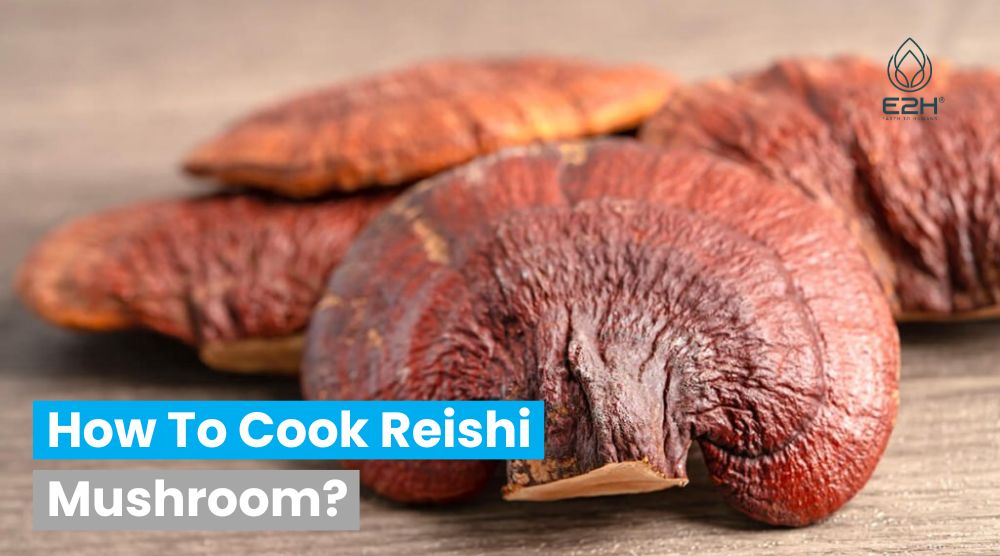How To Use Dried Reishi Mushroom: Rehydrate dried Reishi mushrooms by soaking for 30 mins. Simmer in boiling water for 1-2 hours to make a health-boosting tea. Or slice and add to soups and dishes.
For more delicious and nutritious ways to incorporate Reishi mushrooms into your routine, keep reading the next exciting section!
How To Use Dried Reishi Mushroom: Step by Step
Step 1: Purchase Quality Dried Reishi Mushrooms
Ensure that you buy high-quality dried Reishi mushrooms from a reputable source. Look for mushrooms that are whole and free from any signs of mold or discoloration.
Step 2: Prepare the Mushrooms
Before using dried Reishi mushrooms, it’s essential to rehydrate them. Follow these steps:
- Rinse: Gently rinse the dried Reishi mushrooms under cold running water to remove any dirt or debris.
- Soak: Place the mushrooms in a bowl and cover them with warm water. Allow them to soak for at least 30 minutes to an hour. This will rehydrate the mushrooms and make them more pliable.
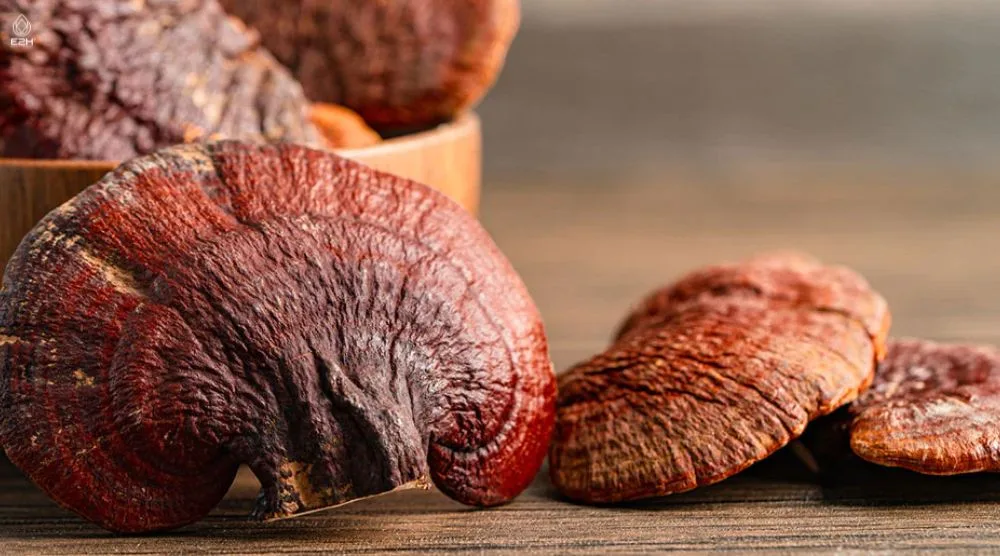
Step 3: Cook or Brew
Once the Reishi mushrooms are rehydrated, you can use them in various ways:
Option 1: Make Reishi Tea
- Boil Water: Bring water to a boil in a pot or kettle.
- Add Mushrooms: Place the rehydrated Reishi mushrooms into the boiling water.
- Simmer: Reduce the heat and let the mushrooms simmer for at least 1-2 hours. Simmering for a more extended period may extract more beneficial compounds.
- Strain: After simmering, strain the liquid to remove the mushroom pieces. You can sweeten the tea with honey or add other flavorings if desired.
- Enjoy: Drink the Reishi tea regularly for potential health benefits.
Option 2: Incorporate into Cooking
- Dice or Slice: Once rehydrated, dice or slice the Reishi mushrooms depending on your recipe.
- Cooking Methods: You can incorporate them into soups, stews, stir-fries, or other dishes. The cooking process further extracts the beneficial compounds.
Step 4: Store
If you have leftover rehydrated Reishi mushrooms, you can store them in the refrigerator for a few days. Make sure to keep them in an airtight container.
Tips:
- Adjust the quantity: The amount of Reishi mushrooms you use can vary depending on your recipe and personal preference.
- Experiment: Feel free to experiment with different recipes to find the method of preparation that suits your taste buds.
How To Make Your Reishi Decoction?
- Choose Quality Reishi Mushrooms: Select whole, dried fresh Reishi of mushrooms from a reliable source. Ensure they are free of mold or discoloration, signifying freshness and potency.
- Rehydration Process: a. Rinse the mushrooms gently under cold water to remove any impurities. b. Place the mushrooms in a bowl and soak in warm water for 30 minutes, allowing them to rehydrate.
- Prepare for Decoction: a. Boil water in a pot or kettle. b. Add the rehydrated Reishi mushrooms to the boiling water.
- Simmering for Extraction: a. Reduce heat to a gentle simmer. b. Let the mushrooms simmer for 1-2 hours, extracting beneficial compounds like triterpenes and beta-glucans.
- Strain and Enjoy: a. Strain the liquid to separate it from the mushroom pieces. b. Optionally, sweeten the decoction with honey or other natural sweeteners. c. Consume the Reishi decoction regularly for potential health benefits, including immune support and stress reduction.
- Storage Tips: Place any unused decoction in an airtight container and refrigerate for future use. This ensures freshness and convenience.
What is the most effective way to take Reishi mushroom?
- Reishi Capsules or Extracts: Convenient and standardized dosages are found in capsules or liquid extracts. Easily incorporate into your daily supplement routine for immune support.
- Reishi Tea: Prepare a soothing tea by simmering dried Reishi mushrooms. The warm infusion enhances relaxation and promotes overall well-being. Sweeten with honey if desired.
- Culinary Use: Integrate Reishi into meals by slicing rehydrated mushrooms into soups, stews, or stir-fries. Cooking preserves its healthful compounds while adding a savory element.
- Tinctures: Alcohol-based tinctures offer another efficient method. Droplets under the tongue allow for quick absorption, aiding in stress reduction.
- Consider Individual Preferences: Opt for the method aligning with personal preferences and lifestyle, ensuring consistent and enjoyable consumption.
How to store dried reishi mushrooms for longer shelf life?
To ensure a longer shelf life for dried Reishi mushrooms, proper storage is crucial. Store them in a cool, dark place away from direct sunlight and moisture. Utilize an airtight container, such as a glass jar or a vacuum-sealed bag, to protect the mushrooms from air and humidity.
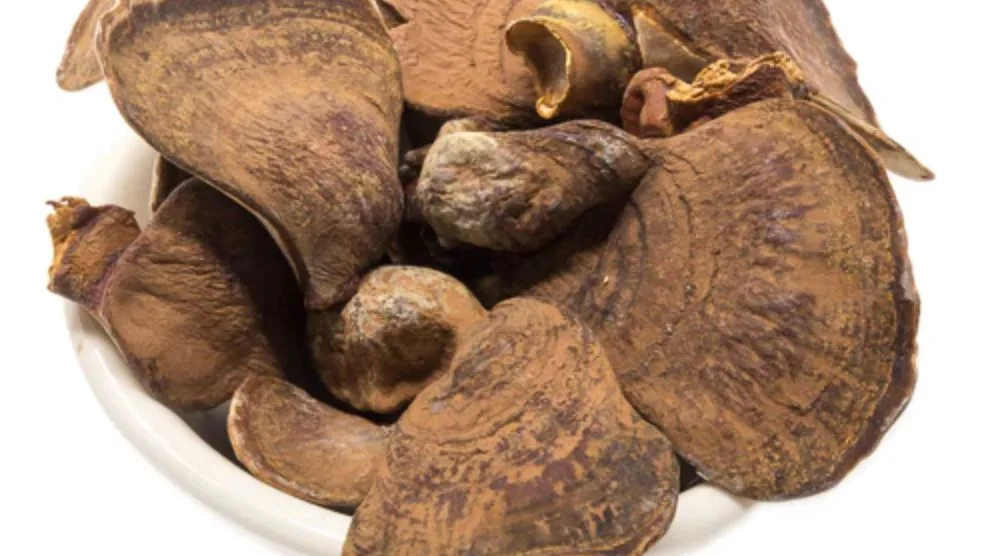
Maintaining a consistent temperature, preferably below room temperature, helps preserve the reishi mushrooms growing and’ quality. Avoid storing them near strong odors, as mushrooms can absorb surrounding scents. By adhering to these storage practices, you can extend the shelf life of dried Reishi mushrooms, ensuring they remain potent and ready for various culinary or medicinal uses.
What are the benefits of dried reishi mushrooms?
Dried Reishi mushrooms offer a spectrum of health benefits attributed to their bioactive compounds. Known for immune system modulation, Reishi contains polysaccharides and beta-glucans that stimulate immune responses, enhancing the body’s defense mechanisms.
Rich in antioxidants, it combats oxidative stress, potentially reducing inflammation. Reishi is also recognized for its adaptogenic properties, aiding the body in stress adaptation. Studies suggest potential cardiovascular benefits, promoting heart health.
Moreover, the triterpenes in consuming Reishi mushrooms exhibit anti-inflammatory effects. Dried Reishi mushrooms can be a valuable addition to one’s wellness routine, contributing to overall health and potentially providing support in various physiological aspects.
Consume Reishi Mushrooms in Delicious Dishes
Harness the nutritional benefits of Reishi mushrooms by incorporating them into delicious dishes. These fungi, known for immune support and adaptogenic properties, seamlessly complement various herbs in culinary creations.
- Reishi Mushroom Broth: Craft a nourishing broth by simmering rehydrated Reishi mushrooms. Infuse soups and stews with its earthy flavor, enhancing both taste and health.
- Reishi Stir-Fry: Sauté sliced rehydrated Reishi mushrooms with vegetables and protein for a savory stir-fry. The mushrooms’ unique taste adds depth to the dish.
- Reishi Risotto: Infuse your risotto with the richness of Reishi mushrooms. The creamy texture of risotto pairs well with the earthy notes of Reishi.
- Reishi Tea Elixirs: Incorporate rehydrated Reishi slices into herbal tea blends. Sweeten with honey for a soothing elixir that combines wellness and flavor.
- Reishi Chocolate Smoothie: Blend rehydrated Reishi mushrooms into a chocolate smoothie for a nutritious and indulgent treat. The mushrooms’ taste complements the richness of chocolate.
How much dried reishi mushroom should I take per day?
The right amount of dried reishi mushrooms to take depends on their form. If it’s a powder, usually, you’d take about 1 to 1.5 grams a day. Capsules are different, and you might take between 2 to 6 grams daily. For reishi mushroom extract, 1-1.5 grams a day is common. If you’re making tea, you’d use 1-2 grams of dried reishi mushroom tinctures. But remember, everyone’s different, so it’s smart to talk to a doctor before starting any new supplements, like reishi mushrooms, just to make sure it’s safe and works well for you.
What are the side effects or interactions of dried reishi mushroom?
Dried Reishi mushrooms are generally well-tolerated, but individuals should be aware of potential side effects and interactions. Mild side effects may include digestive issues, such as upset stomach or diarrhea, particularly when consumed in excess.
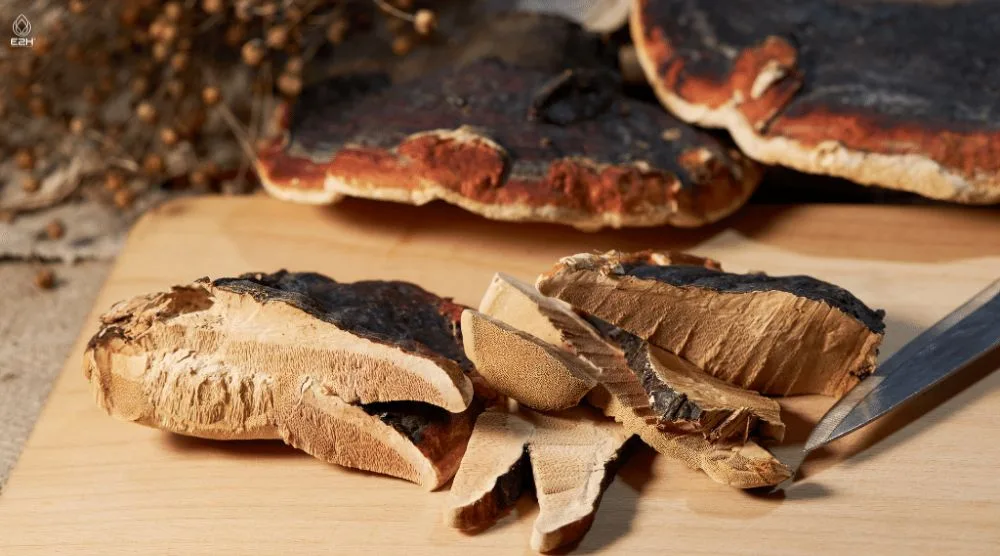
Allergic reactions are rare but possible. Reishi may interact with blood-thinning medications, impacting clotting. Individuals with low blood pressure should exercise caution, as Reishi can have a hypotensive effect.
How to make your own skincare products with dried reishi mushroom extract?
Creating your own skincare products with dried Reishi mushroom extract is a rewarding venture. Begin by preparing the extract: soak dried Reishi mushrooms in warm water, then simmer for an hour. Strain to obtain a potent liquid. Combine this extract with carrier oils like jojoba or sweet almond oil for a nourishing base.
Incorporate other skincare-friendly ingredients, such as aloe vera gel, vitamin E, and essential oils like lavender for added benefits. Experiment with formulations, ensuring proper ratios for consistency. This homemade concoction, enriched with Reishi’s antioxidants and anti-inflammatory properties, can be the foundation for natural, personalized skincare products, promoting skin health and radiance.
FAQs
How can I use dried reishi mushrooms in cooking?
Rehydrate them by soaking, then add to soups, stews, or stir-fries for a savory and health-boosting twist.
What’s the recommended dosage of dried reishi mushroom tea?
Typically, use 1-2 grams of dried reishi mushrooms to make a beneficial and flavorful tea.
Can I add dried reishi mushrooms to smoothies?
Yes, blend rehydrated mushrooms into chocolate or fruit smoothies for added nutritional benefits and a unique taste.
Is it safe to consume dried reishi mushroom capsules daily?
Yes, a daily intake of 2-6 grams in capsule form is generally recommended for potential health benefits.
How long can I store rehydrated reishi mushrooms in the refrigerator?
Store them in an airtight container for a few days to maintain freshness and maximize their culinary or medicinal benefits upon use.
Conclusion
Incorporating dried reishi mushrooms into your routine is a simple yet impactful way to enhance well-being. Whether brewing a comforting tea, adding them to savory dishes, or blending into smoothies, the versatility of reishi mushroom recipes invites creativity. Remember, individual preferences matter experiment, enjoy, and embrace the potential health benefits. So go ahead, explore the world of dried reishi mushrooms, and discover the delightful ways they can contribute to your holistic health journey.
